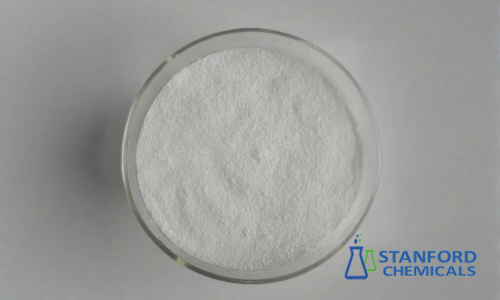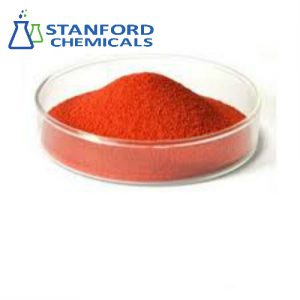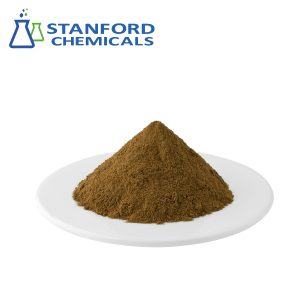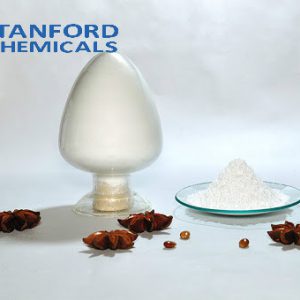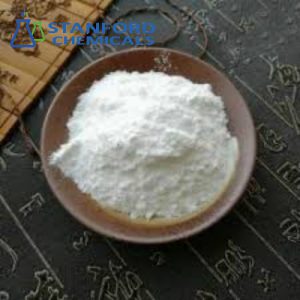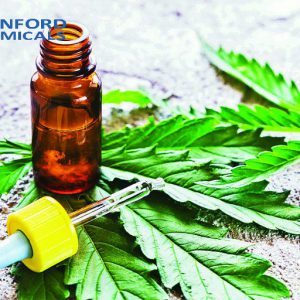- Home
- Herbal Extract
- HA6977 DL-Synephrine Powder (CAS No. 94-07-5)
HA6977 DL-Synephrine Powder (CAS No. 94-07-5)
| Parameter | Value |
| Material | DL-Synephrine |
| CAS Number | 94-07-5 |
| Molecular Formula | C9H13NO2 |
| Purity | ≥98% |
| Appearance | Colorless Crystals |
Related Products: Hesperidin Methyl Chalcone, Methyl hesperidin powder, Hesperidin powder, Dihydroartemisinic acid powder, Artemisinic Acid Powder
- Description
Description
DL-Synephrine Powder Description
DL-Synephrine Powder is a dual-isomer bioactive Citrus alkaloid standardized to ≥98% purity. It functions as a selective α1-adrenergic receptor agonist (EC50 = 8.2 μM) to promote lipolysis and thermogenesis without significant β-adrenergic effects. Clinically validated for safe use at a dose of ≤100mg/day, it is formulated for thermogenic fat-burning applications that require precise modulation of adrenergic activity. This biogenic amine features:
- White to off-white crystalline appearance
- Melting point: 184-187°C
- Moderate water solubility (25 mg/mL at 20°C)
- Good solubility in methanol, ethanol, and DMSO
- Characteristic IR absorption bands at 3350 cm⁻¹ (O-H), 1605 cm⁻¹ (aromatic), and 1240 cm⁻¹ (C-O)
- UV-Vis λmax: 274 nm (aqueous solution)
Structural Characteristics
- Orthorhombic crystal system
- Para-hydroxylated phenyl ring with N-methyl ethanolamine side chain
- NMR aromatic proton signals: 6.7-7.2 ppm
- Birefringent under polarized light
Quality Specifications
- Purity: ≥98% by RP-HPLC
- Moisture uptake: <3% at 60% RH
- Thermal stability: Up to 85°C
- Decomposition: Oxidative pathways above 85°C
Pharmacological Activity
- Selective α₁-adrenergic receptor agonist
- EC50: 8.2 μM
- Structural analog of endogenous catecholamines
DL-Synephrine Powder Specifications
Properties
| Property | Value |
| Material | DL-Synephrine |
| CAS Number | 94-07-5 |
| Molecular Formula | C9H13NO2 |
| Purity | ≥98% |
| Appearance | Colorless Crystals |
| Molecular Weight | 167.207 |
| Melting Point | 187°C |
| Boiling Point | 341.1°C at 760 mmHg |
*The above product information is based on theoretical data. For specific requirements and detailed inquiries, please contact us.
DL-Synephrine Powder Applications
1. Nutraceuticals
- Weight management formulations (5-20% concentration)
- Safe dosage ≤100 mg/day
- Lipolytic activity via α1-adrenergic stimulation
2. Pharmaceuticals
- Cardiovascular research compound
- Decongestant development
- High purity (≥98%) for receptor studies
3. Cosmetics
- Topical fat-reduction products (0.5-2% w/w)
- Localized adipocyte targeting
- Minimal systemic absorption
4. Analytical Standards
- HPLC/GC-MS reference material
- Characteristic retention time: 6.3±0.2 min (C18)
- Sympathomimetic drug screening
5. Sports Nutrition
- Ergogenic performance enhancement
- Anaerobic capacity support
- Catecholamine receptor modulation
DL-Synephrine Powder FAQs
Q1. How does DL-Synephrine differ from natural synephrine in weight management products?
DL-Synephrine is a synthetic racemic mixture providing consistent α1-adrenergic receptor activation (EC50=8.2μM), whereas natural citrus extracts vary in D/L isomer ratios. Its standardized melting point (184-187°C) and ≥98% HPLC purity ensure batch-to-batch reproducibility in thermogenic formulations.
Q2. What analytical methods confirm DL-Synephrine purity in bulk supplements?
Reverse-phase HPLC with methanol-water gradients (65:35 v/v) is mandatory, detecting the primary peak at 6.3±0.2 minutes retention time. Complementary FTIR validation should show characteristic phenolic C-O stretch at 1240 cm⁻¹ and absence of solvent residues below 500 ppm.
Q3. Why is DL-Synephrine preferred over ephedrine in pharmaceutical research?
DL-Synephrine exhibits selective α1-agonism without significant β-adrenergic activity, minimizing cardiovascular side effects. Its orthorhombic crystal structure enhances stability during in vitro assays, and thermal decomposition initiates only above 85°C.

